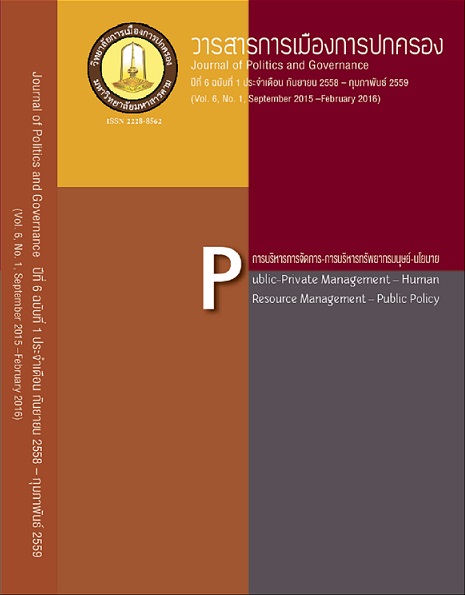On Relation between Democracy and Violence
Main Article Content
Abstract
This article emphasizes the relation between Democracy and Violence. It has evolution since previous times to present. This argument bases on value of city-state of Athens which is appreciated the origin of democracy. After that, democracy can be interpreted in many dimensions. Such as the first is that Democracy Peace; democracies don't go to war with one another. The second is that Democratic Peace unless the consequences are to eliminate a greater evil and the third is that Violent Democracy; the origins and heart of democracy is essentially violent and so on. Violent Democracy is seen as new form of violence that is established after 9/11 crisis in United States of America and this event asserts that the concept of democracy is violent in itself.
Article Details
References
Arias, Enrique Desmond. &Goldstein, Daniel M. (2010). Violent Pluralism: Understand the New Democracies in Latin America. in edited by Enrique Desmond Arias and Daniel M. Goldstein. Violent Democracies in Latin America. Durham: Duke University Press.
Chomsky, Noam. (2000). Rogue States: the rule of force in world affairs. London: Pluto Press.
Chomsky, Noam. (1967). The Legitimacy of Violence as a Political Act? Noam Chomsky debates with Hannah Arendt. Susan Sontag, et al. December 15, 1967. (p. 1-8) http://www.chomsky.info/debates/19671215.htm
Dahl, Robert A. and Tufte, Edward R. (1973). Size and Democracy. Stanford, Calif. Stanford University Press.
Kant, Immanuel. (1991). Toward Perpetual Peace. in edited by H. Reiss. Kant: Political Writings, 2nd. Cambridge University Press.
Keane, J. (2010). Epilogue: does democracy have a violent heart?. in edited by David M Pritchard. War, Democracy and Culture in Classical Athens. (pp. 1-32). Cambridge: Cambridge University Press.
Kleingeld, Pauline. (2006). Kant's Theory of Peace. in edited by Peul Guyer, The Cambridge Companion to Kant and Modern Philosophy. Cambridge: Cambridge University Press, p. 477-504 28.
Lawson, George. (2008). A Realistic Utopia?: Nancy Fraser, cosmopolitanism and the making of a just world order. Political Studies, 56 (4). pp. 881-906. ISSN 0032-3217.
Mansfield, Edward D. & Snyder, Jack. (1995). Democratization and War. Foreign Affairs. May/Jun95, Vol. 74 Issue 3, p79-97. 19p. 5 Graphs. Database: Business Source Complete.
Orrieux, Claude & Pantel, Pauline Schmitt. (1999). A History of Ancient Greece. Translated by Janet Lloyd. Malden, Mass.: Blackwell.
Rai, Milan. (1995). Chomsky's Politics. London : Verso.
Ross, Daniel. (2004). Violent Democracy. Cambridge, U.K.: Cambridge University Press.
Villa, Dana R. ( 2000). Introduction: the development of Arendt’s political thought. In edited by Dana R. Villa. The Cambridge Companion to Hannah Arendt. Cambridge, U.K.: Cambridge University Press.
Weber, M. (2004). Politics as a Vocation. in edited by David Owen and Tracy B. Strong,The Vocation Lectures. Rodney Livingtone translation. United State of America: Hackett Publishing Company.
Winston, Morton. (2002). On Chomsky. Belmont, Calif., U.S.A.: Wadsworth/Thomson Learning.
Sabia, Dan. (2002). Democracy and Utopia. the Annual Meeting of the Society for Utopian Studies in Orlando, Florida, October 26.
Stanley, Ruth. (2010). Living in the Jungle: State Violence and Perception of Democracy in Buenos Aires. in edited by Enrique Desmond Arias and Daniel M. Goldstein. Violent Democracies in Latin America. Durham: Duke University Press.


